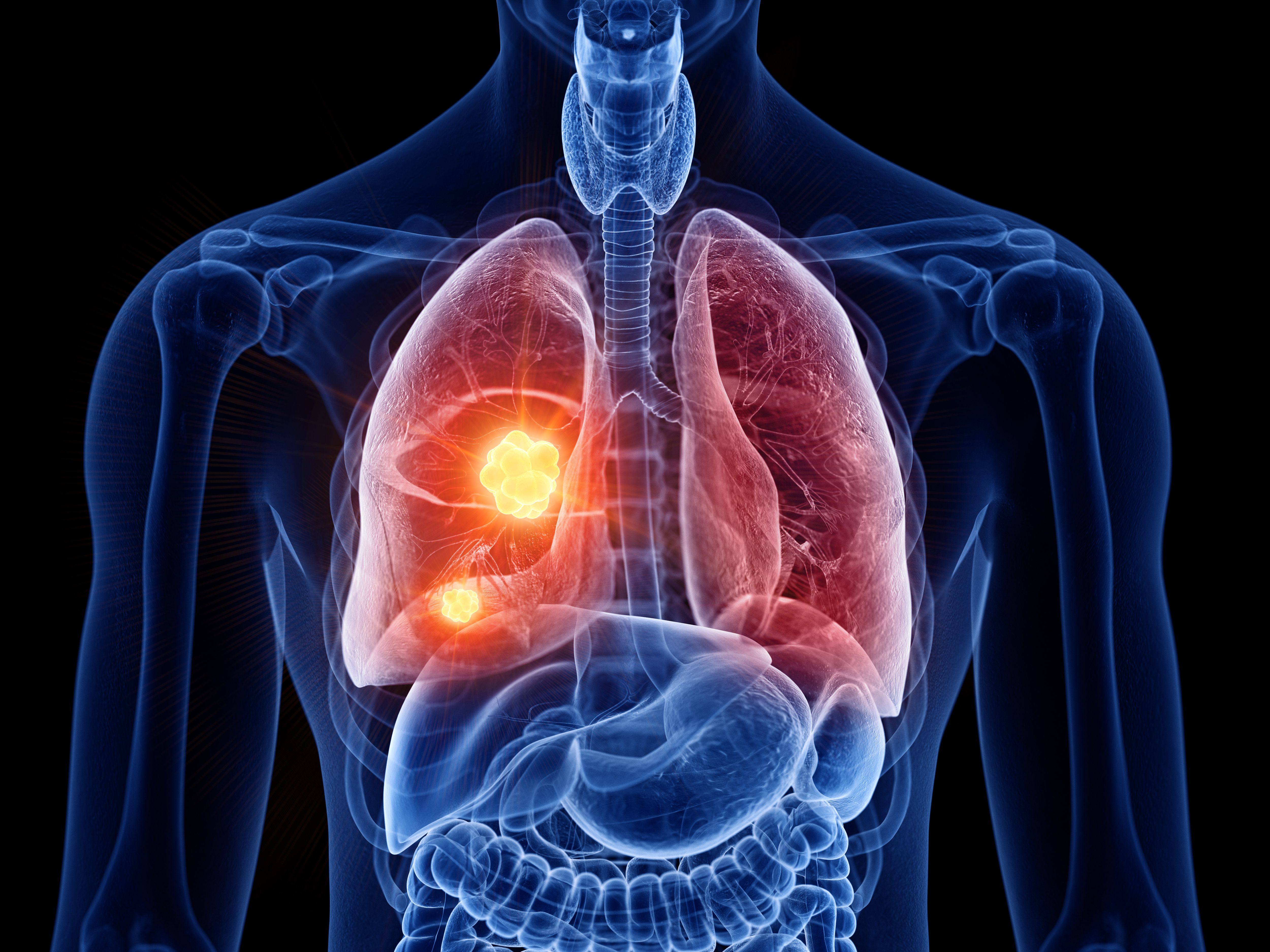- Center on Health Equity & Access
- Clinical
- Health Care Cost
- Health Care Delivery
- Insurance
- Policy
- Technology
- Value-Based Care
Multigene Testing Helpful in Giving Targeted Treatment in NSCLC
Patients with non–small cell lung cancer (NSCLC) who tested positive for driver gene alteration had longer overall survival when given targeted therapy.
Multigene testing should be utilized more to avoid missing driver gene alterations, according to a study published in JAMA Network Open. Finding the driver gene alterations could lead to longer overall survival in patients with non–small cell lung cancer (NSCLC).
The selection of treatments for NSCLC has improved due to immune checkpoint inhibitors and driver gene alterations having targeted agents based on biomarker testing results. Multigene methods are more commonly used due to the increased number of genes that bind with high affinity to a drug. Driver genes are not always sufficiently investigated before treatment in a patient with advanced or recurrent NSCLC. This study aimed to evaluate how much biomarker testing and drug therapy is done for patients with NSCLC to single out problems in treatment for the disease.
Lung Cancer | Image credit: SciePro - stock.adobe.com

The REVEAL cohort study was used to perform this investigation. The cohort consisted of patients who were diagnosed with advanced or recurrent NSCLC from July 1, 2020, to June 30, 2021. Data for the REVEAL study were collected from clinical records from 29 institutions in Japan. The status of biomarker testing was the primary end point of the study. Patients’ clinical background, sites undergoing biopsy for diagnosis and biomarker testing, details of drug therapy, biomarker testing methods and results, sample collection methods, and efficacy were all collected.
There were 1479 patients included in the study. Patients were a median of 72 (range, 30-95) years and 68.5% were men. A total of 78.5% of the participants had an Eastern Cooperative Oncology Group performance status (ECOG-PS) score of 0 or 1 vs 8.8% who had a score of 3 or 4. Squamous cell carcinoma (SCC) was found in 23.3% of the participants and adenocarcinoma was in 64.0%. A total of 80.6% of the participants had advanced-stage cancer, 3.8% had recurrence after chemoradiotherapy, and 15.6% had recurrence after an operation.
Confirmed biomarker status was found in 86.1% of patients, 47.7% had multigene testing, and 57.3% had single-gene testing; 18.9% had both multigene and single gene testing but 13.9% had no biomarker testing at all. The testing was considered a success in 94.7% of DNA analysis of Oncomine DxTT and 90.9% of RNA analysis. Testing for single genes of EGFR was 98.9% accurate, 99.1% accurate in ALK, 91.9% accurate in ROS1, 93.9% for BRAF, and 99.0% for MET. Positivity for EGFR variation was found in 34.0% of patients with adenocarcinoma whereas it was 3.7% in patients without adenocarcinoma.
Patients who had ECOG-PS 3 or 4 (OR, 0.47; 95% CI, 0.32-0.70) and ECOG-PS 2 (OR, 0.74; 95% CI, 0.54-1.01) were less likely to have multigene testing compared with patients with ECOG-PS 0 or 1, according to a univariate analysis. Multigene testing was more likely in patients with adenocarcinoma compared with those with nonadenocarcinoma (OR, 0.66; 95% CI, 0.5-0.82).
A total of 80.0% of 1467 patients with reported treatment information were given any systemic therapy compared with 20.0% who had the best supportive care. A single regimen was taken by 61.2% of the patients compared with 21.6% who had 2 regiments and 17.2% who had 3 or more. A total of 90.8% of patients with druggable driver alterations had targeted therapy. The median overall survival of patients who had a driver gene alteration and received targeted therapy was 24.3 months compared with 15.2 months for those with a driver gene alteration who did not get targeted therapy, and 11.0 months for patients with negative findings in the driver gene alteration.
There were some limitations to this study. Selection bias was possible due to the data set not being consecutive cases. Some results of biomarker testing were only available after first-line treatment had started. There is also limited generalizability due to the clinics opting in for participation and all institutions being cancer care institutions.
The researchers concluded that multigene testing should be implemented and performed more frequently, even in patients who have nonadenocarcinoma or have poor ECOG-PS, as rare driver gene alterations could be missed.
Reference
Sakamoto T, Matsubara T, Takahama T, et al. Biomarker testing in patients with unresectable advanced or recurrent non-small cell lung cancer. JAMA Netw Open. 2023;6(12):e2347700. doi:10.1001/jamanetworkopen.2023.47700
